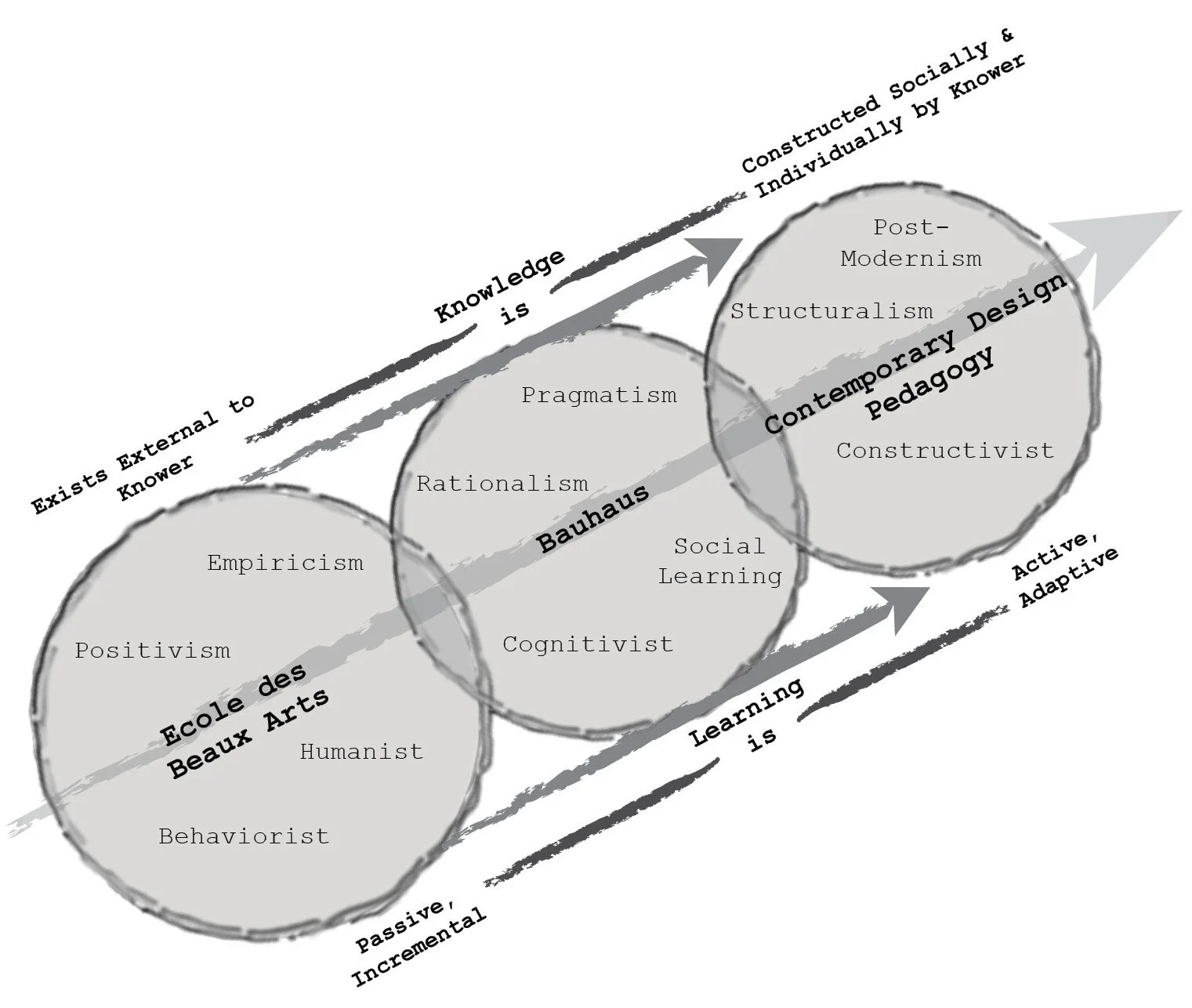theories of knowledge
Early theories of knowledge centered on the passive transmission of knowledge. These theories produced pedagogic techniques like direct lecturing and rote memorization. Today, the many prevalent theories of knowledge emphasize constructivism. Constructivism is the process of constructing new knowledge from prior experiences. Constructivism supports pedagogies related to active learning, metacognition, and self-regulation.
Constructivism
Current epistemological thinking emphasizes the role of cognition in the construction of knowledge. Constructivism suggests that knowledge is comprised of conceptual structures created by individuals and sometimes groups in a fashion congruent with their prior experience and understandings.
Constructivist Principles + Design Learning
Social Cognitive Learning
Social cognitive learning theory suggests that learning occurs by observing and interacting with other people. Social cognitive learning theory provides a framework for understanding design learning.
principles of social learning
1. we learn by observing other people
2. modeling helps teach new behaviors
3. students should practice what they observe
4. self-efficacy is critical for learning
5. learning-oriented goals encourage active learning
6. self-regulated learning improves achievement and learning outcomes
SRDL merges constructivism, social cognitive learning, cognitive processes, and self-regulated learning with existing design learning pedagogies to create a strong foundation for teaching and research in design education.










